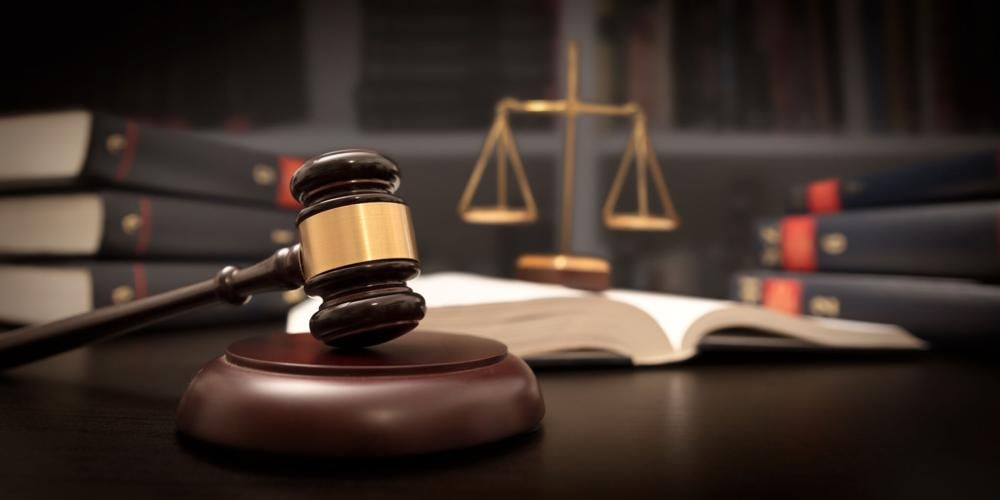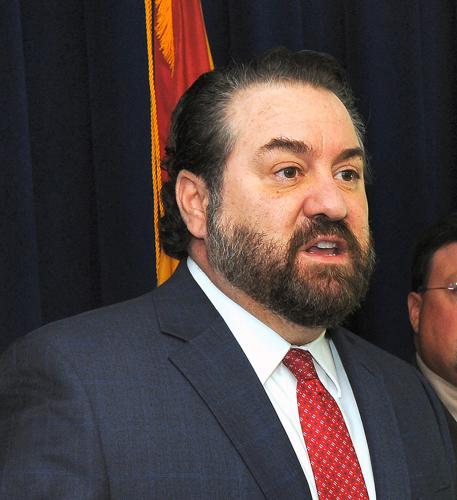PHOENIX — Attorney General Mark Brnovich won’t defend a new law that makes it a crime to videotape police activity within 8 feet.
In fact, he won’t even oppose a bid by media outlets and the American Civil Liberties Union to block its enforcement while the legality of the measure is considered. Instead, he said it is up to legislative leaders to find someone else to go to court on their behalf if they want the law to take effect as scheduled on Sept. 24.
The filing by Brnovich came as a surprise to Senate President Karen Fann.
“This is the first I’ve heard of it,” she told Capitol Media Services. Fann said she now needs to run the issue by Senate staff attorneys “to see whether we should pursue it on our own.”
But the decision by Brnovich to sit on the sidelines during the legal fight did not sit well with Rep. John Kavanagh, R-Fountain Hills. The former police officer is the author of the bill.
“I am disappointed and perplexed as to why the state’s chief attorney does not wish to defend a pro-police law passed by the legislature and signed by the governor,” he told Capitol Media Services. Kavanagh said he is “pursuing other avenues to have this good law and needed law defended.”
Unless someone steps up, however, there will be no one in court later this month on the other side of the issue when U.S. District Court Judge John Tuchi hears arguments from attorneys challenging the measure, contending the law “infringes the clearly established First Amendment rights of plaintiffs and everyone else in Arizona to record the public activities of law enforcement officers.” Challengers want the judge to enjoin enforcement.
The law, if it takes effect, makes it a crime to be within 8 feet of police activity while taking videos. Violators would face up to 30 days in jail and a $500 fine.
Kavanagh said it is legally defensible.
The law is necessary to protect police officers from being distracted, he told Capitol Media Services. And Kavanagh rejected arguments offered by challengers that concerns can be addressed with existing laws that already make it a crime to interfere with police.
In most circumstances, challenges to the constitutionality of state laws are defended by the state. And Brnovich himself is named as a defendant in the lawsuit by virtue of being the state’s chief law enforcement officer. In his post Brnovich has the authority to enforce all state laws.
But in his legal filings, Brnovich does not say whether he believes the statute, likely the only one of its kind in the country, is constitutional. Instead, he is telling the judge there is no reason for him to be named in the lawsuit — or to have to defend the law.
“Plaintiffs have come nowhere close to establishing that there is any sort of threat of enforcement by the attorney general,” he said. He said it would be up to local county attorneys to decide whether to pursue charges against members of the media, activists or others who bring their video cameras within the 8-foot prohibited zone.
So what Brnovich told Tuchi he will do is inform Fann and House Speaker Rusty Bowers that if they want the law defended, they will have to get help from county and local prosecutors.
What happens now remains unclear.
“I will reach out to the (Senate) attorneys and ask them if they feel that this is something that we should be doing or this is something the attorney general’s supposed to be doing,” Fann said.
What those lawyers may think is an open question.
While the Republican-controlled Senate did approve HB 2319 on a 16-12 party-line vote, that came despite legal advice from the chamber’s own legal advisor suggesting the measure had issues.
The bill “does bring up questions relating to First Amendment and freedom of expression” because “recording of law enforcement activity has been recognized by federal courts as following within that First Amendment right,” Chris Kleminich, a Senate staff attorney, told members of the Rules Committee, which is supposed to review legislation for constitutional issues.
In filing suit last month, challengers said the measure “infringes the clearly established First Amendment rights of plaintiffs and everyone else in Arizona to record the public activities of law enforcement officers.”
“By allowing police officers to arrest and punish people for simply recording video of their actions, the law creates an unprecedented and facially unconstitutional content-based restriction on speech about an important governmental function,” wrote David Bodney representing multiple media outlets. He said that news organizations, seeking to avoid possible 30-day jail time and $500 fines, “will have to forgo, or limit their reporting on issues and events that they would otherwise deem worthy of coverage.”
But the legal issues go beyond news organizations.
The legal papers, also signed by K.M. Bell of the ACLU of Arizona, say members of that organization “frequently exercise their First Amendment right to record video of the activities of law enforcement.” And, like their media counterparts, Bell said it is “often necessary or unavoidable to record clear footage” to be within 8 feet of police, including in crowds or public sidewalks.
Brnovich, in the new legal filing, not only wants out of having to defend the law but also pay for it.
“The attorney general will oppose any award of attorneys’ fees or costs against him in any capacity given that he is not litigating the constitutionality of the statute,” the papers read. “Plaintiffs have provided no basis to name him as a defendant, and plaintiffs did not provide any notice or ask him for his position before filing this suit and preliminary injunction.”







